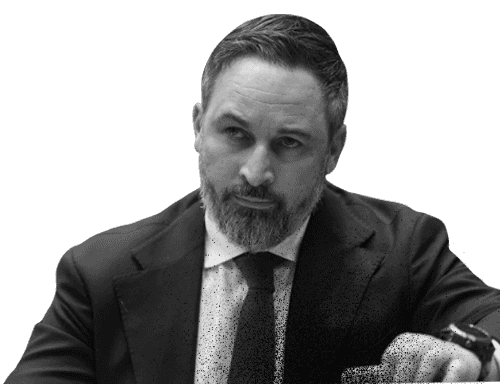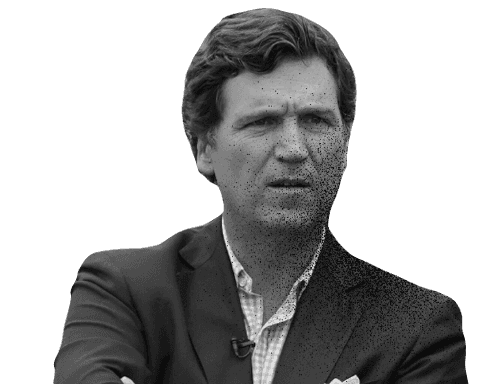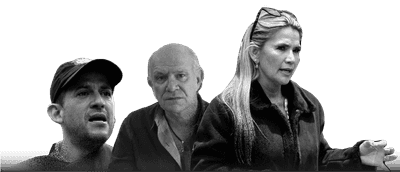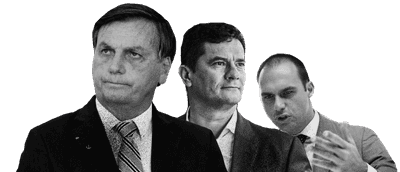Born April 14, 1976, in Bilbao, Abascal was raised in Amurrio, where his grandfather was appointed by the Franco government to serve as mayor from 1963 until the first election for local government in 1979. His father, Santiago Abascal Escuza, joined the far right Unión Nacional Española not long after Franco’s death, before becoming a member of the Alianza Popular. Abascal Escuza went on to become the main leader of the Alianza Popular/PP in the Comarca of Ayala. His father was later elected to the city council of Amurrio, and both served in the provincial parliament of Álava, and even briefly served in congress for a year while Jose Aznar was prime minister. His family’s association with the Francoist dictatorship and the Partido Popular made them the targets of Basque separatist groups, with Santiago Abascal Conde spending much of his early life under armed protection.
Abascal joined the Partido Popular at the age of 18 and quickly rose through its ranks. He was elected to the city council of Llodio in 1999 and was elected as the head of the Basque country section of the PP’s youth organization Nuevas Generaciones in 2000. This allowed him to become a member of the National Board of Directors of the Partido Popular. He published his thesis in 2003 on the “farce of self-determination” with a prologue written by Jose Aznar, and shortly afterwards joined his father in Álava. Abascal would later go on to serve in the Basque Parliament with the PP, during which he founded Fundación DENAES or the Foundation for the Defense of the Spanish Nation.
Abascal belonged to a hardline faction of the PP, led by Maria San Gil, which rejected negotiations with ETA to come to a political solution over the Basque issue. At the party conference of the Partido Popular following the 2008 election, Abascal and future Vox co-founder Alejo Vidal-Quadras presented an amendment which rejected cooperation with regionalist parties. This amendment was ultimately adopted by then-PP leader Mariano Rajoy. Although the increasingly centrist line of Rajoy following the elections lead to the marginalization of Abascal’s faction, with party bosses not allowing Abascal to take up a seat in the Basque parliament.
In 2010, he became the head of the Data Protection Agency for the Community of Madrid by Madrid PP leader Esperanza Aguirre, a few years after Aguirre had also offered a position to Maria San Gil in Madrid. It should be noted that Abascal, Aguirre, and San Gil were all closely associated with the ultra-catholic organization HazteOir, which is affiliated with the Mexican cult, El Yunque. At the end of 2012, he left his role as the head of the data protection agency, and shortly afterwards started working for the Fundación para el Mecenazgo y Patrocinio Social, which was financed with public money from the community of Madrid. The organization was dissolved at the end of 2013, the same year that Abascal went on to establish VOX.
VOX was launched on December 17, 2013. The party then integrated current Spanish MEP Alejo Vidal Quadras, whom they declared the head of their list for the Spanish elections. With significant funding and backing from MEK and El Yunque, they ran for the European elections but fell just short of getting a mandate.
After a failure to get any seats during the European parliamentary election despite assistance from foreign actors, Abascal took over the presidency of the party he helped found. He spent the next several years campaigning, but failed to find a footing. It was only with the incorporation of Rafael Bardaji into the executive of VOX, that the party got traction. After doing well in Andalucia, the party ran for national parliament in the 2019 April elections, where he ran as the head of the list in Madrid.
After being elected to Congress, Abascal has sought to raise his profile internationally. He helped create the Foro Madrid, an international alliance of far-right parties mainly centered in South America. Abascal has also closely worked with his allies affiliated with the European Reformists and Conservatives which includes Italian Prime Minister Giorgia Meloni. He has also sought a closer relationship with American politicians including Ted Cruz and various right-wing think tanks including the Heritage Foundation. Vox’s annual conference, VIVA, heavily features international figures from around the world.
After the Spanish right failed to achieve a governing majority after the 2023 elections, Abascal and his party mobilized against the proposed governing pact which would have involved an amnesty for Catalan separatists. Abascal made an appearance alongside Tucker Carlson during the Ferraz Protests outside of the PSOE’s headquarters in Madrid. His party’s protesters freely mixed and associated with protesters from various fascist groups such as FE de las JONS. He also worked with the PP and Ciudadanos to block the amnesty law on a European level.
As of now, Abascal has reverted to building his international connections ahead of the European elections, most recently appearing with Donald Trump, Javier Milei, and Bukele at CPAC 2024 in Washington DC.








